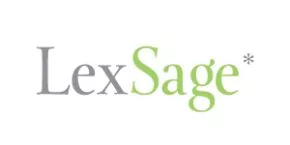On May 10, 2019, the United States increased tariff rates on many goods from China from 10% to 25% (referred to as the "U.S. Trump Tariffs"). The U.S. Trump Tariffs are a form of customs duty that is payable by the importer and is passed on to U.S. consumers. It looks like the U.S. Trump Tariffs will be in place for some time and the U.S. issues with China are complex.
As a result of the new higher U.S. Trump Tariffs, many U.S. companies that import goods from China will have to start paying significant amounts of new customs duties on goods imported into the United States from China. Many of those U.S. companies re-export those same goods to Canada for sale to Canadian wholesalers, retailers, distributors or consumers. If the U.S. company does not have a Canadian subsidiary and/or a Canadian warehouse, they would pay U.S. Trump Tariffs to the U.S. government upon importation of the goods into the United States and will have to apply for duty drawback when the goods are re-exported to Canada. If the U.S. Company does not apply for duty drawback or another form of duty relief, the cost of the U.S. Trump Tariffs will be borne by the company or downstream consumers. While it is possible to get the U.S. Trump Tariffs refunded, the companies must keep meticulous records to prove to U.S. Customs and Border Protection that a refund of the U.S. Trump Tariffs is payable. If the paperwork or evidence is not sufficient, the U.S. government might not refund the U.S. Trump Tariffs - why would the U.S. government to give money back if they do not have to?
An option for addressing the U.S. Trump Tariffs on Chinese-origin goods that will be re-exported to Canada is to set up a Canadian subsidiary and/or sell to Canadian buyers from a Third Party Logistics ("3PL") warehouse. The U.S. company would have the Chinese factory ship directly to Canada to the 3PL warehouse and hold a stock of inventory in Canada. As Canadian wholesalers, retailers, distributors and/or customers place orders, those orders are fulfilled from the inventory in the Canadian warehouse. The U.S. Trump Tariffs are not payable - but Canadian customs duties would be payable. The Canadian customs duties can be factored into the selling prices of the goods.
It is not necessary to establish a Canadian subsidiary to hold a stock of inventory in Canada. Some companies prefer to set up a Canadian subsidiary in order to manage Canadian tax and customs duties risk. The Canadian government and provisional governments would audit the Canadian subsidiary's books and records rather than the U.S. entity.
There would be Canadian compliance issues for the U.S. company selling goods from a Canadian 3PL warehouse. Sales from a Canadian 3PL warehouse to a Canadian buyer would be considered to be a Canadian domestic transaction. This would give rise to Canadian sales tax and income tax issues.
The U.S. company or Canadian subsidiary would also have to consider Canadian customs laws as they would be the importer of record. It is possible that the U.S. company is currently operating as the importer of record rather than shipping to Canadian buyers who act as the importer of record. If the U.S. company or their Canadian subsidiary is the importer of record, they would have to consider valuation issues for customs duties purposes. It is necessary to consider what is the appropriate value to use on Canadian import documents. It is also necessary to ensure that tariff classification codes are correct (the Canadian codes are not always identical to US codes.
It is also necessary to consider whether there are other Canadian compliance or regulatory issues that would apply if the sales are made from a Canadian 3PL warehouse. For example, would it be necessary to obtain Health Canada approvals? Would it be necessary to establish a recall procedure should an issue arise with respect to consumer safety? Does Canada require different information on the label? Does the label have to be in French and English? There are many other Canadian regulatory issues depending on the goods in question.
The content of this article is intended to provide a general guide to the subject matter. Specialist advice should be sought about your specific circumstances.

